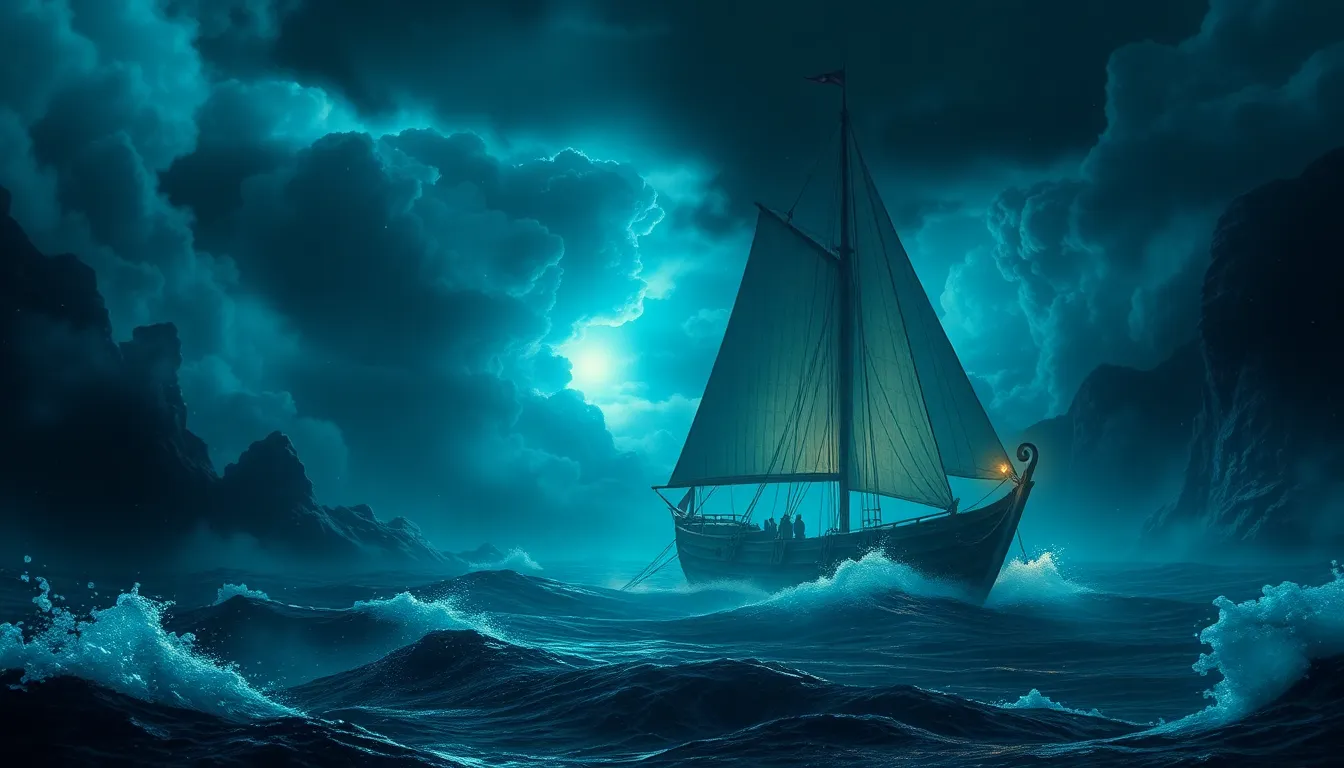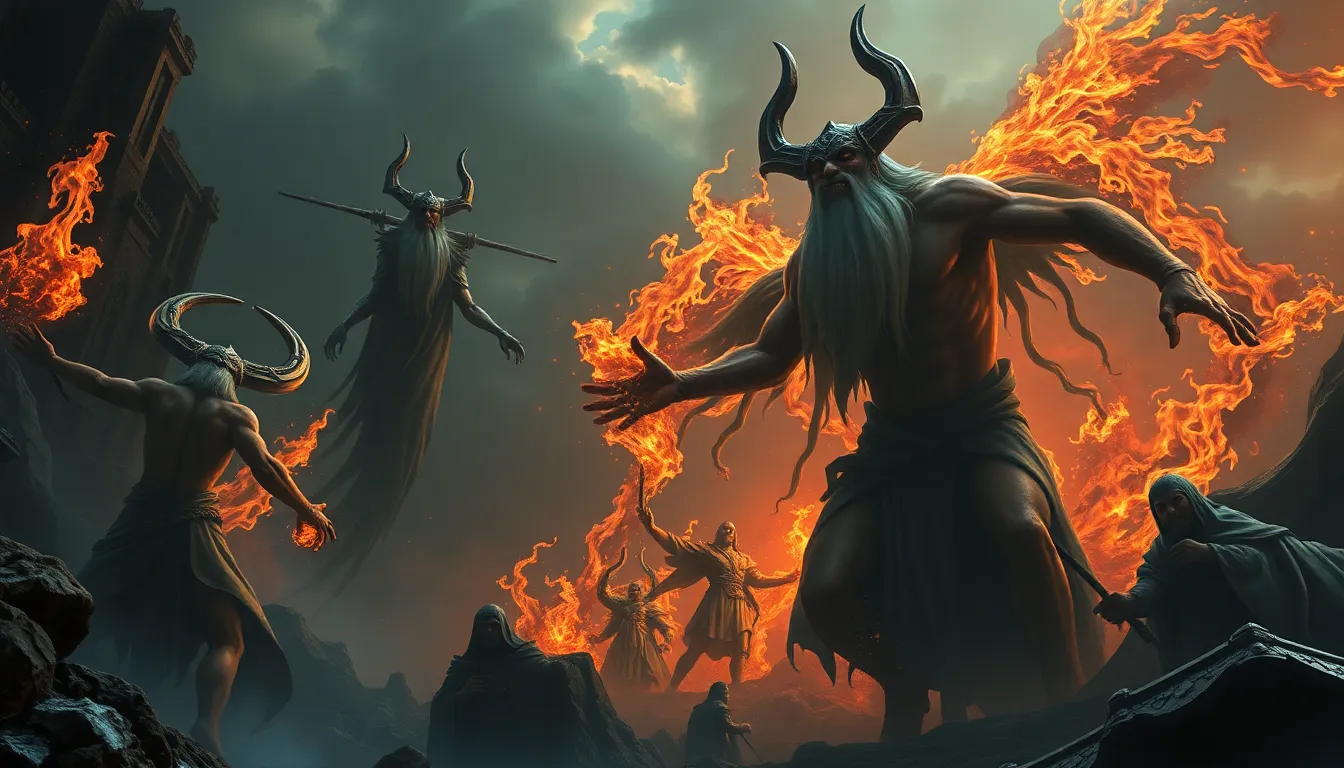The Legendary Voyage: Myths of Epic Sea Adventures
I. Introduction to Sea Myths
Sea myths are legendary narratives that revolve around the mysteries and adventures of the ocean. They play a significant role in various cultures, serving as both entertainment and moral lessons. These tales often reflect the human experience, encapsulating themes of bravery, temptation, and the unknown. The enduring fascination with epic sea adventures can be attributed to humanity’s innate curiosity about the vast, uncharted waters and the creatures that inhabit them.
II. The Origins of Maritime Myths
The origins of maritime myths can be traced back to ancient civilizations that ventured into the sea for exploration, trade, and survival. The historical context of sea exploration is rich, with cultures such as the Greeks, Phoenicians, and Polynesians navigating the oceans long before modern technology. These explorations were often fraught with danger, leading to the creation of myths that explained natural phenomena and instilled a sense of wonder.
Geography has profoundly influenced myth creation. For instance, the Mediterranean Sea, with its numerous islands and diverse cultures, birthed myths like the Odyssey, while the vastness of the Pacific Ocean inspired tales from Polynesian cultures, where navigation was an art form in itself. Each region’s unique environment contributed to the specific characteristics of their maritime legends.
III. Iconic Sea Myths and Their Heroes
Among the most iconic sea myths are the tales of legendary heroes who embarked on epic quests. These narratives often explore the themes of bravery, sacrifice, and the human spirit’s resilience.
- The Odyssey: This epic poem by Homer tells the story of Odysseus, who faces numerous trials as he attempts to return home after the Trojan War. His encounters with mythical creatures and divine beings reflect the struggles between man and the forces of nature.
- Jason and the Argonauts: Jason’s quest for the Golden Fleece is another significant myth. Accompanied by a band of heroes, the Argonauts face numerous challenges, highlighting themes of teamwork and courage.
- Sinbad the Sailor: These tales from the Arabian Nights depict Sinbad’s adventurous voyages, where he encounters strange creatures and magical islands, symbolizing the spirit of exploration and discovery.
IV. Mythical Creatures of the Deep
Mythical creatures play a central role in sea myths, often embodying humanity’s fears and desires.
- Sirens: These enchanting beings are known for their beautiful songs that lure sailors to their doom. They symbolize the danger of temptation and the perils of straying from one’s path.
- Leviathans and Sea Monsters: These colossal creatures represent chaos and fear, often seen as manifestations of the ocean’s uncontrollable power. They remind sailors of the dangers that lurk beneath the waves.
- Mermaids: These half-woman, half-fish beings are often depicted as guardians of the ocean. Their dual nature reflects the complexity of the sea, embodying both beauty and danger.
V. The Role of Nature in Sea Myths
The sea itself is often portrayed as a living entity in myths, representing both nurturing and destructive forces. Storms, tides, and the unpredictable nature of the ocean are frequent motifs.
- The Sea as a Living Entity: Myths often personify the sea, attributing human qualities to it. These stories emphasize the need for respect and understanding of nature.
- Celestial Navigation: The stars have guided sailors for centuries, leading to myths that intertwine navigation with the cosmos. The relationship between the sea and the heavens is a recurring theme in maritime mythology.
- Humanity’s Relationship with Nature: Myths reflect humanity’s complex relationship with the sea, emphasizing both dependence and fear. They serve as cautionary tales about the consequences of disrespecting nature.
VI. The Cultural Impact of Sea Myths
The cultural impact of sea myths is profound, influencing literature, art, and modern storytelling.
- Influence on Literature and Art: From ancient texts to Renaissance paintings, sea myths have inspired countless works. They often serve as allegories for human experiences.
- Modern Storytelling Adaptations: Today, sea myths are reimagined in films, literature, and video games, demonstrating their versatility and continued relevance in contemporary culture.
- Preservation of Maritime Myths: Many cultures still celebrate their maritime myths, ensuring that these stories are passed down through generations, reflecting their historical significance.
VII. The Psychological and Philosophical Dimensions
Sea myths delve into profound psychological and philosophical themes, exploring the human condition.
- Existential Themes: Many sea myths tackle existential questions, reflecting humanity’s quest for meaning in the face of uncertainty.
- The Hero’s Journey: The archetypal hero’s journey is often set against the backdrop of the sea, symbolizing personal growth and transformation through challenges.
- The Search for Purpose: Navigating the seas becomes a metaphor for navigating life’s uncertainties, emphasizing the importance of resilience and self-discovery.
VIII. Comparative Analysis of Sea Myths Across Cultures
A comparative analysis of sea myths reveals both similarities and differences across cultures, shaped by historical and geographical contexts.
- Mythological Narratives: While many civilizations have similar themes, such as heroic quests and mythical creatures, the specifics often vary greatly.
- Trade and Exploration Influence: The exchange of ideas through trade routes has led to the sharing and adaptation of myths, enriching cultures worldwide.
- Case Studies: Polynesian, Norse, and Greek sea myths showcase unique perspectives on the ocean, reflecting each culture’s values and beliefs.
IX. Modern Interpretations and Revivals
In contemporary society, sea myths are reimagined and repurposed, reflecting current values and technological advancements.
- Reimagining Sea Myths: Modern adaptations often seek to make these ancient tales relevant to today’s audience, exploring themes such as environmentalism and personal identity.
- Impact of Technology and Media: The rise of digital media has allowed for new interpretations of sea myths, bringing them to life in ways that engage younger generations.
- Resurgence of Nautical Adventures: Popular culture has seen a revival of interest in nautical adventures, with films and books celebrating the allure of the sea.
X. Conclusion: The Enduring Legacy of Sea Myths
The enduring legacy of sea myths reflects the timeless nature of human curiosity and the quest for adventure. These tales not only entertain but also provide insight into our relationship with the natural world. Preserving these myths is crucial, as they represent the collective wisdom of cultures that have navigated the seas for centuries. As long as the ocean remains a source of wonder and fear, the legends of epic sea adventures will continue to inspire future generations.



